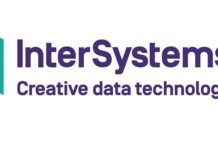Due to their increasing familiarity with mobile devices, patients today expect better and faster healthcare services.With 90 percent of American adults owning a mobile device, mobile technologies have undoubtedly permeated our lives in recent years.
The healthcare industry is poised to take advantage of this rapid evolution and adoption, as mobile technologies continue to bring remarkable advances in the way healthcare is delivered and received.
This has made mobile technology a critical in the industry’s shift to a more patient-centric and value-based care system.The ability to access information in a click – or at times, even with the touch of a fingertip and carry it on-the-go, is an invaluable capability for patients and healthcare staff alike that expect healthcare at the speed of now.
While advances in technology bring the power to improve interactions between patient and provider, informed consent forms and often other documentation requiring patient signatures often remain a lingering source of manual and paper intensive processes throughout hospitals.
The informed consent is part of a physician’s legal and ethical duty to engage patients in choices regarding their healthcare. The informed consent process involves relaying information to patients regarding their rights, treatment plans, and possible treatment risks and benefits. While consent stands for much more than a signature on a form, the effectiveness of the process in which the consent signature is obtained is extremely.
The lack of standardization inherent to paper-based consent form processes can result in delays and inconsistencies, drain the valuable time of clinicians, expose hospitals to risk, and ultimately, impact patient safety.
But, what if you could capture the appropriate consents electronically on a mobile tablet right at the point-of-care – the patient’s bedside? In turn, ensuring informed consent forms are instantly archived and readily available to the care team.
Understanding the extent to which patients and healthcare organizations are affected by inefficient paper-based consent processes, may be the key to understanding the critical role mobile consent automation can play.
INEFFICIENT CONSENT FORM PROCESSES = BIG RISKS
Failure to obtain adequate informed consent and to document that consent can result in a tort claim in negligence or battery and put the provider at risk for failure to meet a CMS or a Joint Commission accreditation standard or a licensure action. Documenting informed consent using paper forms exposes the hospital to the risk of missing forms, improper documentation and the associated liabilities, including the need to write-off procedures.

Misplaced and outdated informed consent forms lead to delays and liabilities. In fact, according to an article citing a study from JAMA Surgery, missing consent forms occurred in 66 percent of procedures. These missing forms are estimated to delay 10 percent of surgeries and can cost hospitals $580,000 each year making informed consent a process hospitals cannot afford to overlook. Plus, the common costs associated with re-printed consent forms, such as ink, toner, paper, storage space, etc. can add up.
Paper-based processes are not only costly , they are challenging for staff members, who are increasingly pressed for time. Activities such as scanning, retrieving and labeling forms and indexing them with patient records are time-consuming. Additionally, signed consent forms are not instantly available, as the data remains confined to a piece of paper until manually scanned into the system. These lagging processes distract staff, such as nurses, whose core focus should be placed on quality time spent with patients, not tracking down their paperwork.
From a patient’s perspective, paper-based forms can lead to overlooked sections, forgotten forms or the absence of a signature in a required field. Additionally, patients lying in a prone position in a hospital bed may experience discomfort and have difficulties viewing and signing paper documents and writing with a pen. Most important, in a world where mobile technologies and the speed they bring are prevalent – delays in care can leave a big impression of a healthcare organizations in the minds of those that have the most influence in shaping the future of a hospital: the patient.
Acquiring and documenting informed consent is crucial to ensuring that patients are educated about their healthcare plans and are fully engaged in their care decisions. Poor communication or inefficient documentation during this vital process can increase the litigation risk for healthcare organizations. In fact, California’s Medicare contractor, Palmetto GBA, found that 54 percent of denied claims were due to provider documentation-related technical errors that can easily be avoided.
Taking a standardized approach to the informed consent process is a powerful tool for healthcare staff, and most for patients. eSignature eliminates the risks associated with using an outdated consent form and the liabilities associated with incorrect information, as forms are guaranteed to always be the most up-to-date, approved version.
CLOSING THE REMAINING GAP IN EHR SYSTEMS
EHR systems have created a positive shift in the industry as they have enhanced many critical processes across healthcare enterprises. Yet, there remains a hole that needs to be filled: electronic consents at the bedside. For optimal patient care and for the sake of your healthcare organization’s bottom line, it should be everyone’s goal to find the best solution to fill this gap to maximize quality of care and revenue opportunities.
It is important for HIT decision makers to know that while a successful EHR implementation is a major milestone on the journey to becoming a paperless hospital, a dedicated eForms solution will help hospitals take operational efficiency the extra mile while leaving no paper trail behind.Technology exists today that allows you replace paper forms with electronic forms that offer many benefits to both patients and staff. The eForms are quickly signed by the patient, immediately archived in the EHR, and instantly visible to the care team. When you combine the power of mobile technology to the informed consent process, healthcare workers can deliver better patient care and realize higher levels of productivity.
makers to know that while a successful EHR implementation is a major milestone on the journey to becoming a paperless hospital, a dedicated eForms solution will help hospitals take operational efficiency the extra mile while leaving no paper trail behind.Technology exists today that allows you replace paper forms with electronic forms that offer many benefits to both patients and staff. The eForms are quickly signed by the patient, immediately archived in the EHR, and instantly visible to the care team. When you combine the power of mobile technology to the informed consent process, healthcare workers can deliver better patient care and realize higher levels of productivity.
Is your healthcare organization ready to make the move to an automated mobile consent process?
FormFast offers a solution to improve your informed consent form process whether it’s currently all paper-based or partially automated. FormFast integrates with your EHR system to present the correct documentation for patient signatures on mobile devices – streaming the consent process. The patient can read the form on a tablet, at their bedside, and conveniently sign the form electronically with their finger or stylus. FormFast supports links to educational content embedded in the form to ensure the patient is fully informed of the risks associated with procedures. Staff can then quickly self-sign the form and date-time stamps are automatically applied. Upon the submission of the consent form, it is archived instantly into the EHR preventing lost documentation and making information instantly visible to the care team.






















